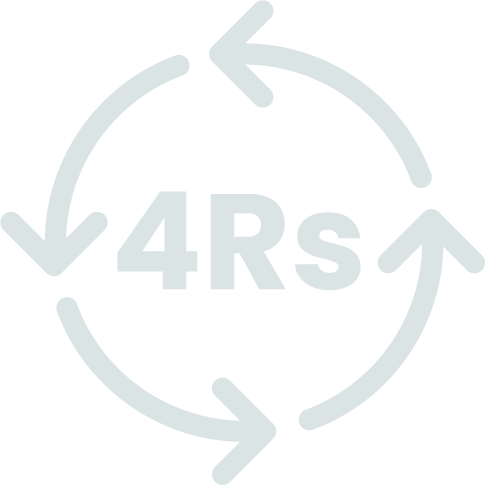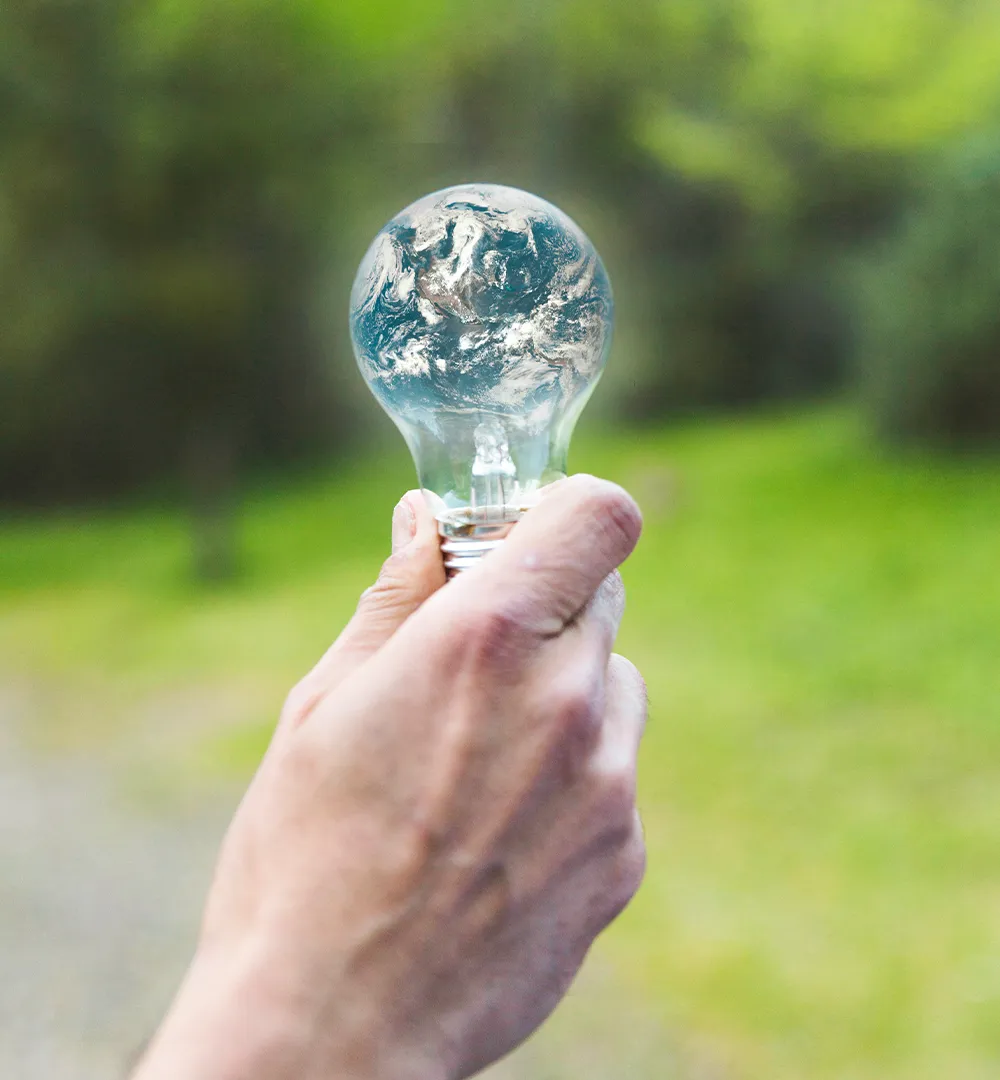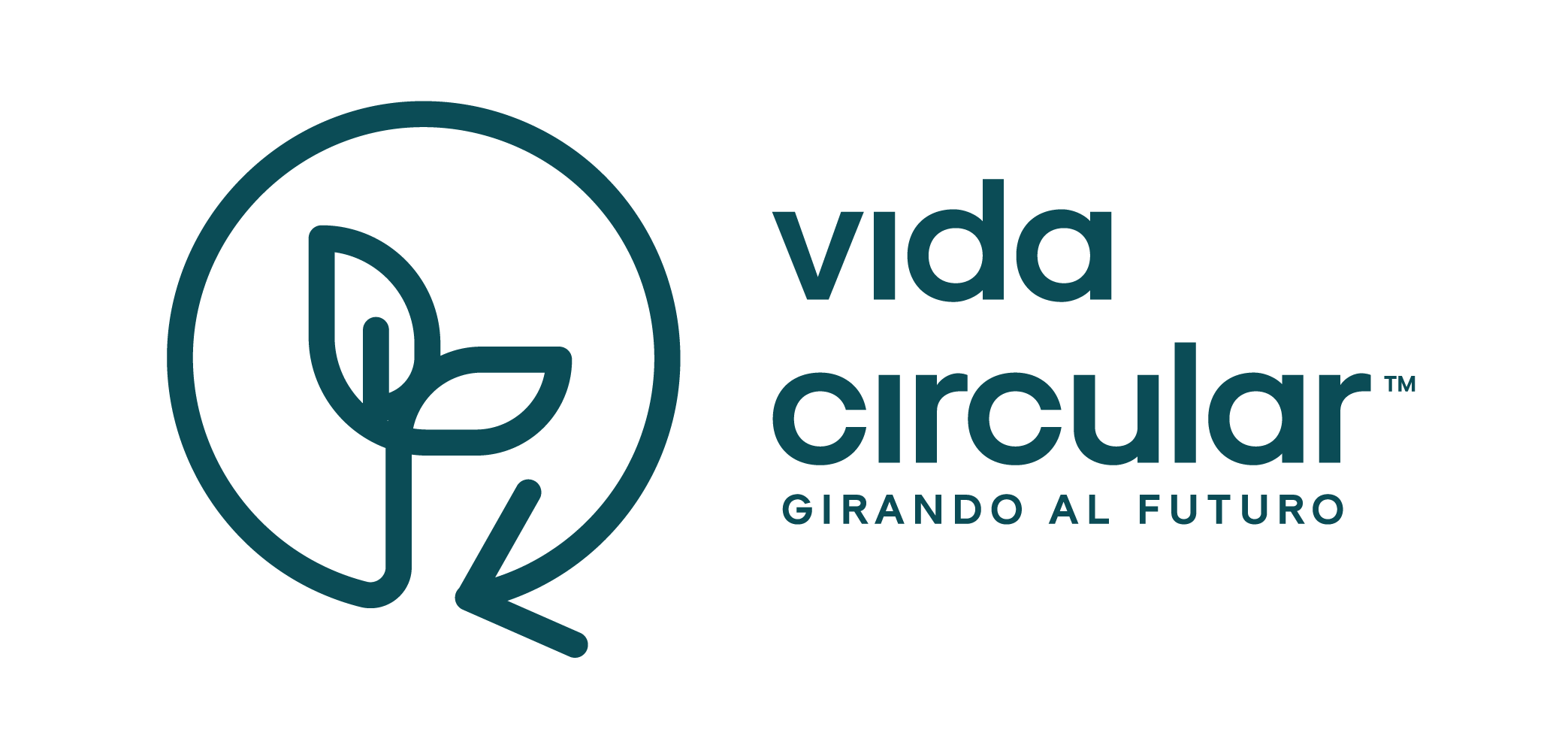
Did you know that with small daily actions you can make a big difference for the planet?
We are not talking about big sacrifices, but something as simple as following the 4R's rule : Reduce, Reuse, Recycle and Recover. These four words hide an enormous power, and by applying them in your daily life, you are helping to take care of the environment and promote a circular economy.
At Vida Circular, we believe that transforming the world begins with small decisions that, cumulatively, generate a huge impact. So, are you ready to discover how the 4R's can change the way you consume and take care of the planet?

Reduce
Less is more
The first R of sustainability invites us to rethink our consumption. Reducing does not mean depriving ourselves, but making more conscious choices. Before buying something new, ask yourself if you really need it or if there is a more efficient alternative. Every little decision adds up to less waste and better use of available resources.
Practical example
Opt for long-lasting products
Choose LED bulbs instead of incandescent bulbs, as they consume less energy and last much longer. The same applies to efficient appliances, rechargeable batteries and quality items that do not need constant replacement.
TIP
Before making a purchase, evaluate whether you can repair, share or exchange rather than buy something new. Many times, what you need is already in your hands. Reducing is simple and powerful: less waste, more positive impact.
Reuse
Give everything a second life
Here's where it gets interesting: Reuse. We all have things at home that we no longer use. Instead of throwing them away, think about how you can give them a second life.
Practical example
Turn jars into organizers
An empty glass canning jar can serve as a kitchen organizer or even a planter for small plants.
TIP
Use cloth rags instead of paper to clean at home. In addition to reducing waste, you can wash and reuse them many times.
Reusing not only allows you to be creative, but also reduces the amount of items that end up in the trash, so give things another chance before you get rid of them!


Recycle
Transforming for a Better Future
Recycling is more than a habit; it is a way to give new life to materials. Although separating waste is already a common practice, doing it correctly makes a difference. Recycling is about recovering and processing materials into new products, preventing them from ending up in landfills and reducing the need to extract new resources.
Practical example
From Plastic to New Products
What looks like just an empty bottle can become another bottle, a piece of clothing or even street furniture. Thanks to advanced processes, recycled plastics can be given a second life in a variety of uses.
Practical Example: Reinventing Plastics
Not all plastics are the same, but many can be recycled. PET bottles become new bottles, HDPE packaging can be transformed into different containers, and even polypropylene is reused in auto parts.
TIP: Separate with purpose
Designate a space at home for recyclable plastics and keep them clean. This prevents them from being contaminated with organic debris and facilitates their recycling. Each well separated material is an opportunity to transform resources into impact. Recycling is a small effort with a big impact.
Retrieve
Making the most of what cannot be recycled
Finally, we have Recover. Through this process, materials are extracted from a product and reused directly in another good, system or service. Recycling and recovery are very close terms. However, there is a difference: recovery does not require reprocessing the material for further use.
Practical example
Home composting
If you have space, you can use organic waste (leftover fruit, vegetables and coffee) to create compost in your garden or in a composter. This reduces waste and generates natural fertilizer for your plants.
TIP
Seeks to find new ways to use existing materials.
Recovery is a last resort when we cannot reduce, reuse or recycle, but it is still a very valuable option to minimize the impact of waste.

The Power of the 4R's in Your Daily Life
The 4R's are not just a list of abstract ideas, they are actions you can take today. By reducing what you consume, reusing what you already have, recycling correctly and making the most of what you can't reuse, you are helping to transform the world.
General TIP
Do a "4R's challenge" at home. Try to apply one of the R's every day of the week, either by reducing water and light usage, reusing objects, separating recyclable materials or investigating how to use your organic waste.
Transforming the world with every action, the 4R's are a simple yet powerful guide to caring for the planet and fostering a circular economy. Ready to apply the 4R's in your life? Start today and be part of the shift towards a more sustainable future!

